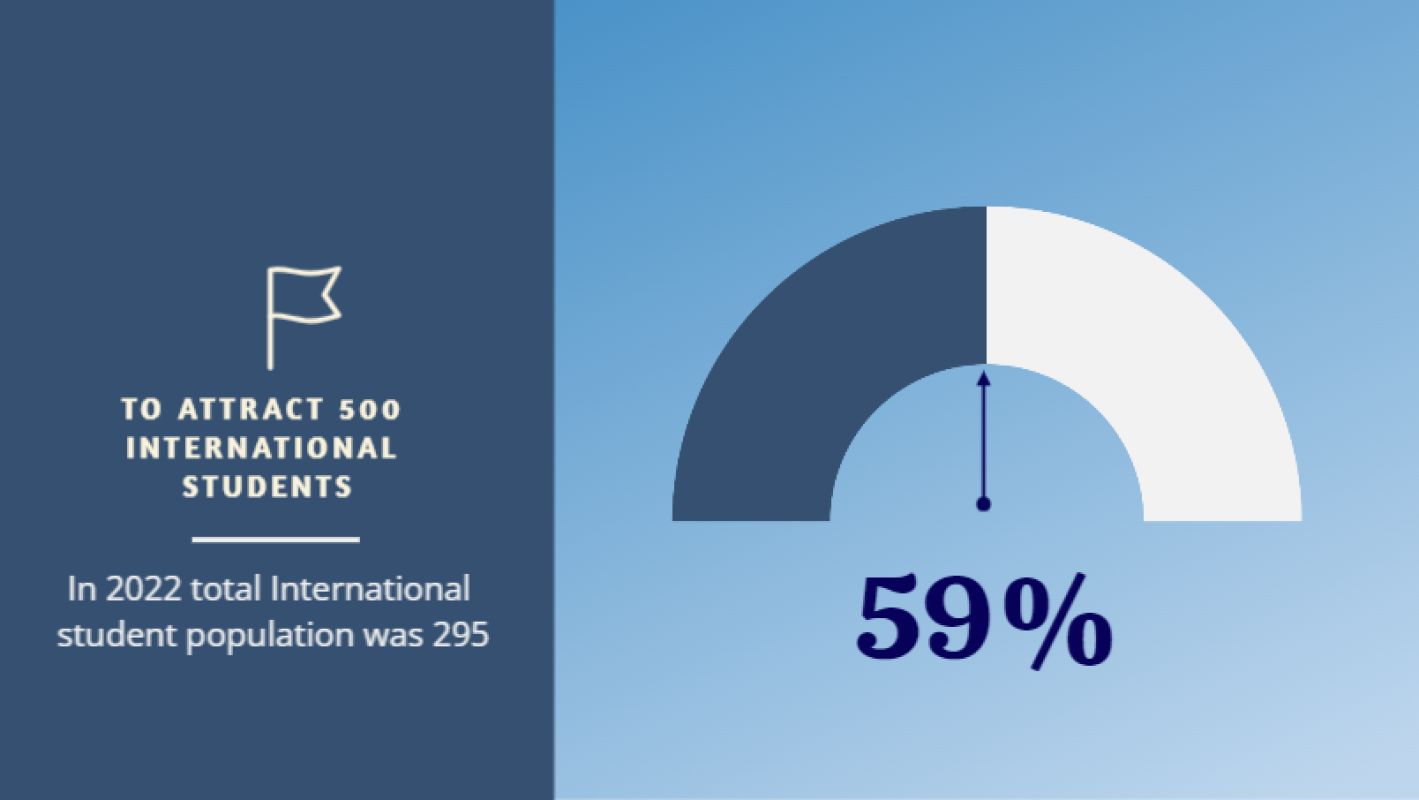For SDG 10, reduced inequalities, KDU has consistently contributed, as exemplified by the higher ranks achieved for the same in international university rankings systems. The following topics outline the contributions KDU makes to support reducing inequalities.
Nondiscriminatory admission to KDU degree programs
Application for KDU degree programs is done through an online platform. Therefore, provided that minimum eligibility criteria are met, anyone is able to apply without discrimination, and the application sorting and calling for aptitude tests and interviews are all done using the automatically generated ‘call-up numbers'; hence, there is no room for discrimination based on gender, race, or creed. In addition, the ‘call-up numbers’ mechanism ensures full anonymity and objective evaluation. Applications are sorted algorithmically, focusing on grading scores and specific academic requirements rather than personal preferences. This process facilitates unbiased admission, encouraging diversity and equal opportunities within the university environment. Ultimately, KDU is committed to promoting an inclusive and equitable education platform by eliminating any form of discrimination during the admissions process. [ More details ]
International students from developing countries
In order to maintain friendly relations with the countries in the region, KDU attracts international students from developing countries and provides them with KDU degree programs and facilities at subsidized rates. In Sri Lanka, KDU attracts the largest number of international students from low and middle-income countries such as Bhutan, Nigeria, Sudan, Rwanda for its degree programs. Moreover, KDU signs MOUs with friendly nations in the region to avail KDU degree programs to suitably qualified students from those countries. Often, students from those countries are provided with scholarships to study at KDU at reduced rates. These measures ensure that young international minds access quality higher education programs which are otherwise out of their reach. Acquiring an education at KDU equips them with competitive career skills. These intercultural exchanges also foster global understanding and relationships which extend long after graduation. KDU’s inclusivity efforts help these students elevate their respective communities professionally and are essential in promoting economic growth, peace, and prosperity in the region. Consequently, KDU not only contributes to international diplomacy but also broadens the cultural lens of domestic students, ensuring they graduate as global citizens equipped to handle future challenges.
Target in 2030

Accessible facilities for people with disabilities
The facilities at KDU are accessible to the disabled. Wheelchair ramps are available to make the entrance and exit easier for such individuals. Additionally, students with physical disabilities are able to use the elevator at the institution. Mentoring assistance is also given to the differently abled, where their specific needs are considered and listened to. This adoption of accessibility principles highlights KDU’s commitment to providing a nurturing environment for all its students and staff.
Mentoring support for students
All students of the university are assigned with an academic mentor. These experienced staff members assist in building study strategies, integrating into the academic community, and identifying resources for overall development. They collectively aim to foster a supportive learning environment, boost students' confidence, and facilitate in achieving academic goals. The mentor-student relationship not only covers academic progress but also focuses on personal growth, setting forth a versatile nature. The open lines of communication encourage close collaboration, enhancing student engagement and enabling proactive problem-solving.




















